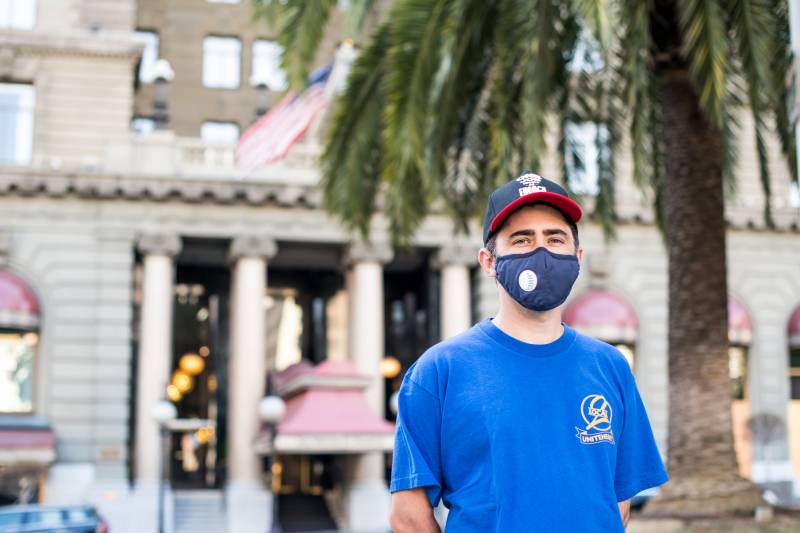Nicholas Javier got nervous when conventions started canceling their reservations at the Westin St. Francis in early March. He worked as a server at the downtown San Francisco hotel for six years.
Javier lost his job at the hotel in the middle of March. He's a member of Unite Here Local 2, and he’s still not sure when he’ll be able to return to work. Javier filed for unemployment, but couldn’t afford to keep paying rent so he moved out of his apartment and in with his girlfriend. Now, nearly four months into unemployment, he’s worried about how long the current instability might last.
“It's hard to put into words the level of fear and anxiety that comes from knowing that you might not have enough money for rent for the following month,” he said.
He is one of nearly 81,700 leisure and hospitality workers to lose their job in San Francisco in recent months, by and large thanks to the COVID-19 pandemic.
More Than Half of Food Service and Arts Workers Lose Their Jobs
San Francisco, Redwood City and parts of San Mateo County have one of the lowest unemployment rates in California, 12.6% according to the Bureau of Labor Statistics. The area also had one of the lowest drops in employment. But those numbers mask the stark divide that’s only growing between people who can easily transfer to working from home, and those who can’t.
Overall, workers in leisure and hospitality lost the most jobs in sheer numbers from March to May according to the California Employment Development Department. People working in restaurants and other food service establishments lost the highest number of jobs: 71,600. Also, about 48% of workers in arts and entertainment lost their jobs, but far fewer people are employed in this industry compared to the city’s tens of thousands of leisure and hospitality workers. About 10,000 people in arts and entertainment lost their jobs.
“The brunt of the job losses has occurred for groups of workers that were already vulnerable in a variety of ways,” said Till von Wachter, director of the California Policy Lab and a professor of economics at UCLA. Workers in retail sales and accommodation and food service lost work at high rates — jobs that are often held by women, young people and people with less education — and early unemployment data reflected that.
“These individuals have very low incomes, no savings and hence a very large fraction of their income is spent on rent and necessity,” he said. “There wasn't a lot of wiggle room. Having them being the hardest hit in the crisis is really concerning.”
Some establishments did start to hire workers back in May, as the state moves into the next phases of reopening. Just under 4,000 people headed back to work in leisure and hospitality. The vast majority remain unemployed.
Tech and Government Employment Largely Holds Steady
While people like Javier continue to struggle to make ends meet, others have maintained relative stability. The vast majority of people with jobs in industries like technology or finance have transitioned to working from home and kept their jobs. So have many government workers. However, local education workers lost work at more than double the rate of other government workers: 12.9% filed for unemployment compared to 5.1% overall.

